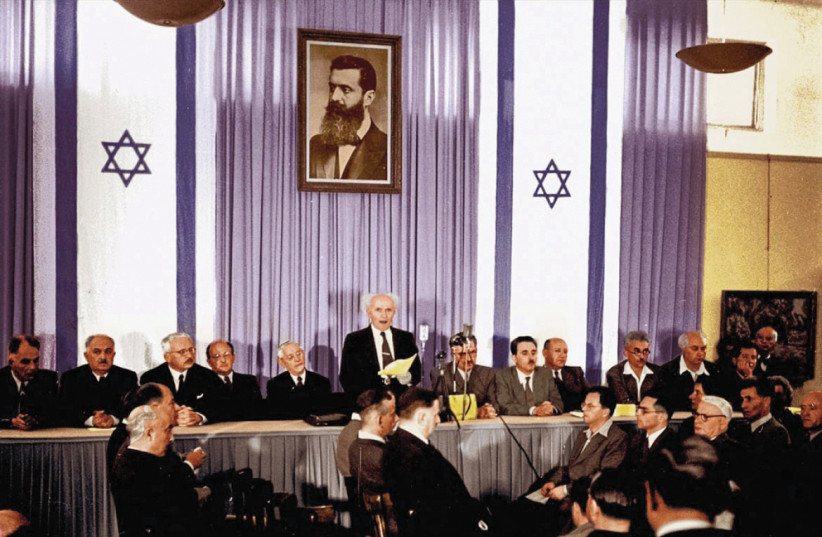The role of public declarations of recognition and loyalty, such as national anthems and pledges of allegiance, are important both for personal identity and building a feeling of national unity.
For Americans, it is an eloquent and short statement of only 31 simple words: “I pledge allegiance to the Flag of the United States of America, and to the Republic for which it stands, one Nation under God, indivisible, with liberty and justice for all.”
The pledge is subtlety designed to allow the individual to maintain their personal identity and religious beliefs (“I pledge”) yet be part of and belong to a national group (“...for all”). Furthermore, it directly reflects and re-enforces the foundational statement found in the United States Declaration of Independence: “We hold these truths to be self-evident, that all men are created equal, that they are endowed by their Creator with certain unalienable Rights, that among these are Life, Liberty and the pursuit of Happiness.”
“I pledge allegiance to the Flag of the United States of America, and to the Republic for which it stands, one Nation under God, indivisible, with liberty and justice for all.”
The Pledge of Allegiance
Israel is similar to the US, in that it is a nation of indigenous people, as well as immigrants looking for a better life or for those fleeing towards a democracy, due to religious or other types of persecution. Yet, Israel is different from the US and other countries, as many immigrants are returning to their ancient homeland.
Interestingly, Israel’s Declaration of Independence goes even further than the US’ in explaining its own foundational beliefs: “[Israel] will foster the development of the country for the benefit of all its inhabitants; it will be based on freedom, justice and peace as envisaged by the prophets of Israel; it will ensure complete equality of social and political rights to all its inhabitants irrespective of religion, race or sex; it will guarantee freedom of religion, conscience, language, education and culture; it will safeguard the Holy Places of all religions; and it will be faithful to the principles of the Charter of the United Nations.”

Like the American Pledge of Allegiance, the Israeli pledge should be short yet evocative and eloquent. It should be similar to the story telling and declarative structure of the Israel Declaration of Independence. Perhaps a committee including poets could be assembled.
Tikkun olam
The first part of the pledge should acknowledge the Jewish sovereignty, Abrahamic heritage, history from the ancient kingdoms to the land and its legitimate place among the nations of the world. The second part: tikkun olam (repair the world) as an external sentiment and mission. The third part: Equality for all, under a Jewish theocratic democracy, so expressed by Israel’s Declaration of Independence, as a declaration of its internal mission.
A draft expressing those ideas and intents might read: I pledge allegiance to the ancient and modern sovereign State of Israel, with its long continuous history and heritage of the Jewish faith and people. Our mission is to be good citizens of the country and the world through tikkun olam and to treat all my fellow citizens with equality and freedom.
As we approach the 75th anniversary of the reemergence of a state of Israel, with all its divisive politics and seemingly endless election cycles, this might just be a fruitful and unifying exercise to help all citizens of Israel feel a little more connected to one another.
The writer is a former NYC career advertising and marketing executive. David holds a BS and an MBA from New York University. He has been an officer/board member/speaker of industry, educational, and community organizations, as well as several new business start-ups. Currently David is semi-retired but continues as an instructor at Rutgers University School of Communication & Information and consultant. Follow him on Twitter @davidslevine or visit his blog: thetruthfulproject.blogspot.com.
